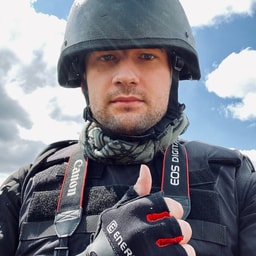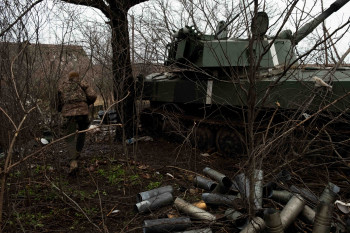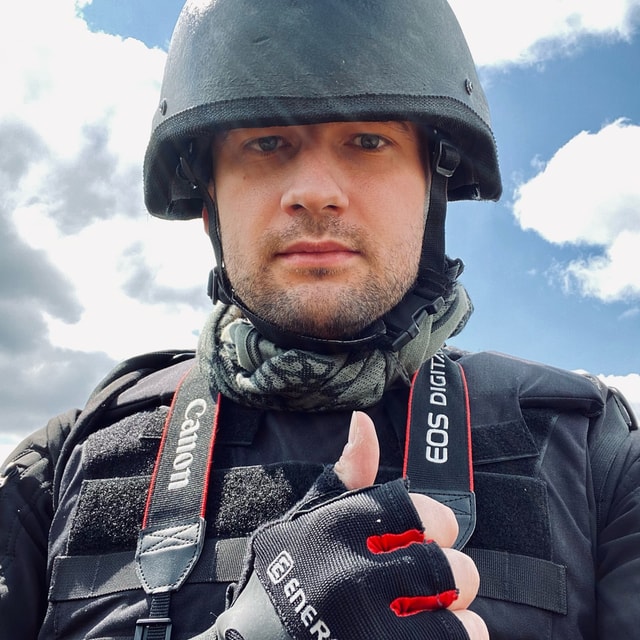With the loss of Soledar, Ukrainian positions in Bakhmut jeopardized
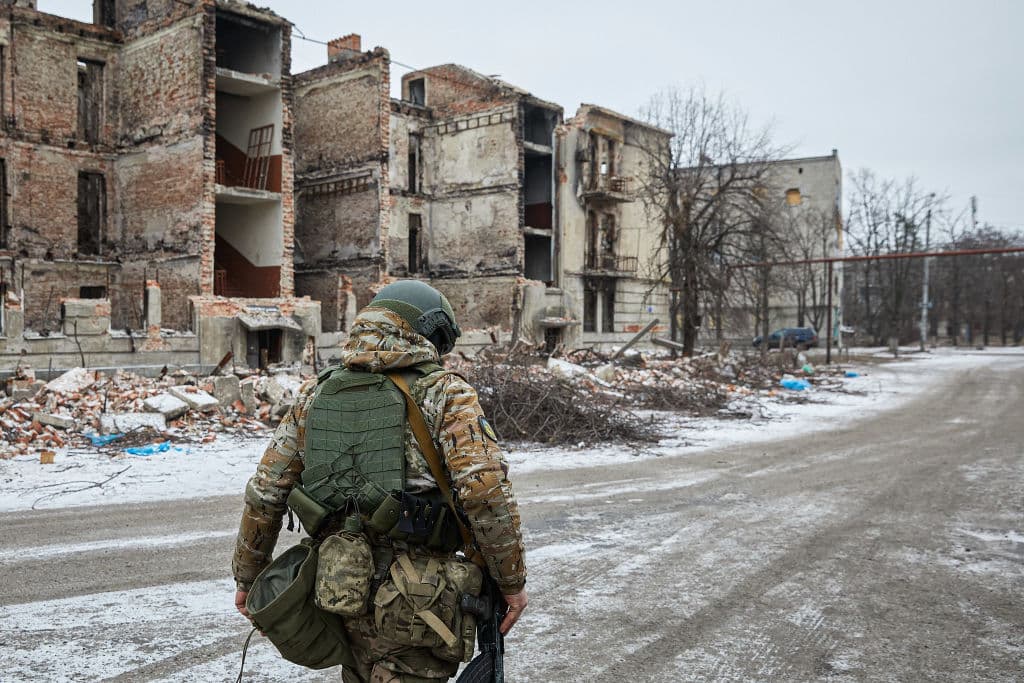
The dramatic fight for Soledar, part of the Battle of Bakhmut, is over — although Ukraine's leadership is still reluctant to acknowledge the loss.
As a result of a localized offensive operation in January, Russian forces managed to gnaw through Ukrainian defenses and, after fierce urban fighting, seize what's left of the industrial town of 10,000.
Although fighting in the area continues, The Kyiv Independent sources, as well as international monitors, all fully agree Ukraine doesn’t control the town.
It's the first noticeable Russian success since their forces captured Sievierodonetsk and Lysychansk after fierce fighting in June and July.
It is also a massive vanity project for Yevgeniy Prigozhyn, the Kremlin insider in charge of the notorious Wagner Group. And it's a long-desired present for Russian war propaganda, which had been craving for at least some progress to show.
The loss of Soledar is largely the result of relentless human wave attacks exhausting Ukrainian defenses, as well as of crushing knockout blows by regular forces. The setback also indicates long-lasting Ukrainian issues with chaotic command and control and also the lack of centralized approach and coordination in the area.
The lack of artillery and munitions to cope with endless and massive Russian frontal assaults has also played its role – it’s given Russian forces a window of opportunity for a resolute strike.
But despite the Russian propaganda presenting the capture of Soledar as a major victory, it’s only of tactical significance so far. Russia continues with its attempts to build on the progress and sever the ground lines communications (GLOCs), thanks to which Bakhmut keeps holding on.
The situation in Bakhmut, which became known as the Ukrainian fortress city, has become even more complicated — but it is still not critical.
A sudden rush
The Wagner mercenary army has been trying to break through Ukrainian defenses at Bakhmut since at least August.
Even the Wagner, with its no-matter-the-cost storm tactics, has found it hard to reach substantial success in frontal assaults against heavily fortified Ukrainian positions in east Bakhmut.
Russian attempts to perform a pincer movement on the city from the north and the south have been way too long and painful, too. Over the last three months of 2022, the Wagner forces managed to make certain gains south of Bakhmut, particularly in the town of Kurdiumivka, which was seized as late as December.
Cutting Bakhmut’s ground lines of communications (GLOCs) is a far more realistic way for Russians to succeed. To achieve it, Russians need to take control of three highways: the E40 (M03) Sloviansk-Bakhmut highway northwest of the city, the T0513 highway Bakhmut-Siversk north of the city, and the T0504 highway running west to Kostiantynivka.
For much of the battle, Russian advances in the area succeeded by just a few dozen or a few hundred meters a day. It took Russia nearly three months to advance by some 4 kilometers and seize Kurdiumivka, a village south of Bakhmut, some 12 kilometers from the T0504 highway.
The situation changed by the beginning of 2023, when regular forces, particularly Russia's elite VDV airborne units, were redeployed to the area. Russian forces detected weak spots in Ukrainian defenses in Soledar — and pounced at them in full swing.
As early as Jan. 5, Russians approached the town from two strike axes, from the north and from the south, forcing Ukrainian forces into a hard-fought retreat to avoid encirclement. Over the next few days, formations with Ukraine's 46th Airborne Brigade, supplemented with artillery and additional armor, managed to somewhat stabilize the situation, but not for long.
After short and fierce resistance in the town's western outskirts, Ukrainian formations withdrew from the last pockets of Soledar around Jan. 12.
Russians continued with their attempts to amplify its success and advance farther northwest and west towards Blahodatne, Krasna Hora, and Pidhorodne, where it did not have any immediate progress. And Ukrainian forces took up a new position on dominant heights west of Soledar along the T5013 road.
As a result, as of Jan. 20, Russian forces established fire control over two out of three supply lines with Bakhmut, namely the road to Siversk and also the junction leading to the Slovyansk highway. Thus the use of these ground lines of communication is either impossible or impeded now.
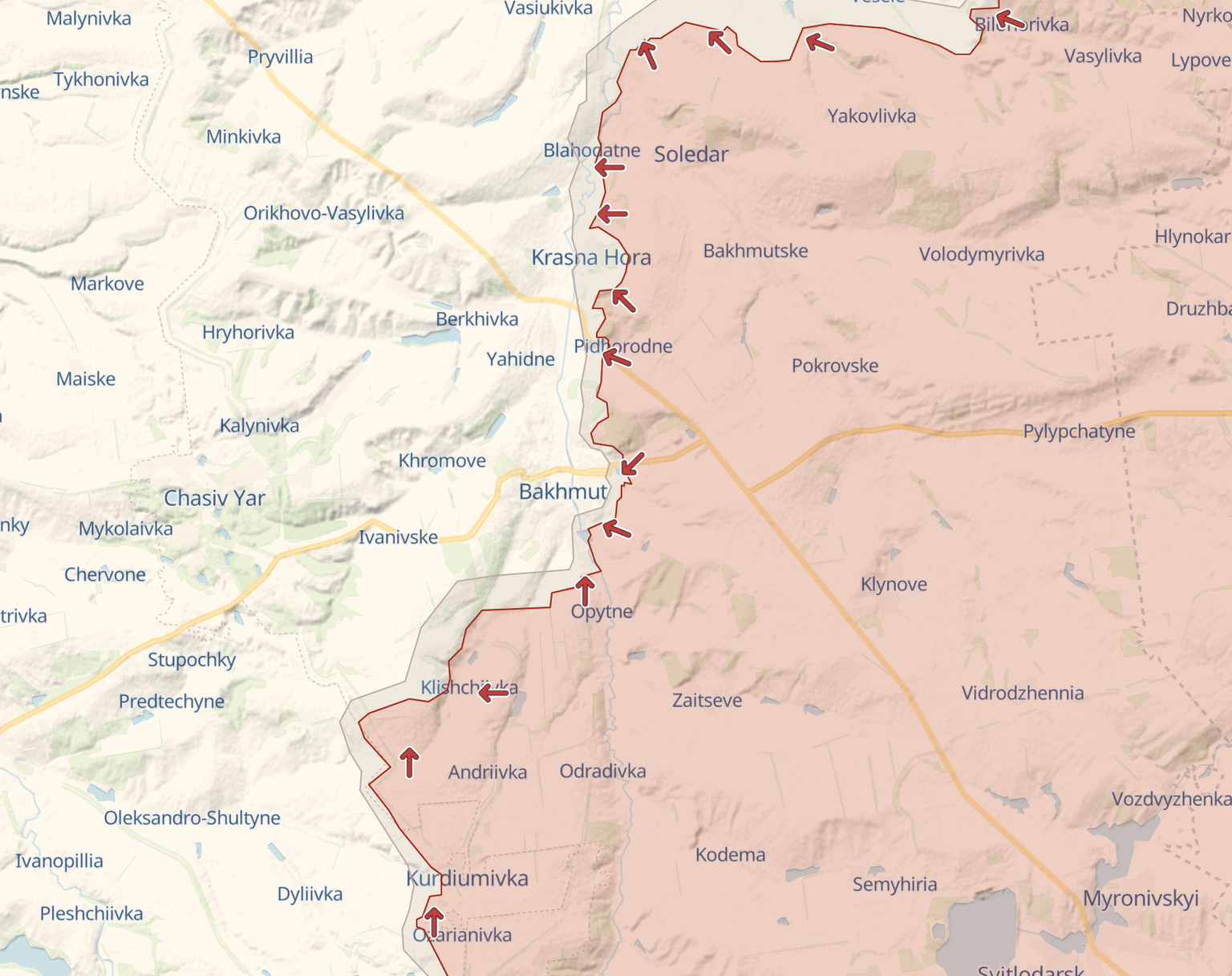
Russian pro-war media and state propaganda burst out in euphoria after many months without any success but with spectacular setbacks in Kharkiv, northern Donbas, and Kherson. Russia continues trying to convert this into an operationally significant result that would pose a grave threat to the Bakhmut garrison or even a potential collapse of the Ukrainian front-line section.
And according to the Institute for the Study of War (ISW), a U.S.-based defense think tank, Russian propaganda "have over-exaggerated the importance of Soledar, which is at best a Russian Pyrrhic tactical victory."
"Russian forces likely captured Soledar after committing significant resources to a highly attritional tactical victory which will accelerate degraded Russian forces' likely culmination near Bakhmut," the think tank said.
"Russian forces may decide to maintain a consistently high pace of assaults in the Bakhmut area, but Russian forces' degraded combat power and cumulative exhaustion will prevent these assaults from producing operationally significant results."
According to the ISW, the capture of Soledar, a settlement of just some 12 square kilometers, will not enable Russian forces to exert control over critical Ukrainian GLOCs into Bakhmut nor better position Russian forces to encircle the city in the short term.
However, on Jan. 19, Wagner's Prigozhyn, who continues to position his mercenary army as the single main actor in the operation, claimed the capture of Klishchiivka, an important village just south of Bakhmut.
Klishchiivka is known to have changed hands at least two times over the recent weeks. And it is also an important and heavily fortified Ukrainian defense line covering the southern outskirts of Bakhmut.
As of Jan. 20, the Ukrainian military command does not confirm the Russian presence in Klishchiivka. If Wagner's claim is true, Russian forces may be standing between 3 and 5 kilometers from the Bakhmut-Kostiantynivka road, now the vital lifeline for Bakhmut.
Command in chaos?
Tom Cooper, an Austria-based warfare expert and author, called the claimed capture of Klishchiivka "no catastrophe but an unpleasant loss."
Russians are still facing a fortified city from one side, and also several kilometers of open terrain to cross before they can cut the last Ukrainian supply line off.
"It's harder to find cover in the open field than in a built-up area," the expert said.
"And the terrain in front of the Russians is largely open all the way to Bila Hora and Chasiv Yar now, with which they could drive deep behind the southern flank of Bakhmut's defenses."
According to the experts, the southern flank is defended by experienced Ukrainian combat units, including the National Guard's 4th Rapid Response Brigade and the army's 28th and 53rd Mechanized Brigades, supported by the 40th Artillery.
"All are combat-experienced troops, some with additional training in Europe," Cooper said.
"Problem: the Russians are coming in such numbers and so often that all units ended the day critically short on artillery and mortar ammunition. By the evening, Ukrainians were actually down to mowing down the assaulting Russians by machine guns alone."
Ukrainian forces in the Battle of Bakhmut have the will and are determined, and they have better tactical skills and usually fight from protected positions. But Ukrainian forces still have "no tools to literally destroy the Russians at a faster rate."
Another major problem for Ukraine is the lack of proper communications and coordination among "too many troops from too many different units into a much too small area," Cooper said.
According to the expert, the front-line area currently has elements from nearly 15 different Ukrainian brigades.
And without well-coordinated command, the high motivation and combat experience of Ukrainian units are "all in vain," Cooper said.
______________________
Note from the author:
Hello! My name is Illia Ponomarenko, the guy who wrote this piece for you.
I hope you found it useful and interesting. I work day and night to bring you quality stories from Ukraine, where Russia is waging the biggest war in Europe since WWII. My little homeland, Donbas, is now the site of the worst fighting. We are helping to keep the world informed about Russian aggression. But I also need help from every one of you — to support Ukrainian wartime journalism by donating to the Kyiv Independent and becoming our patron. Together, we can help bring peace to Ukraine.
